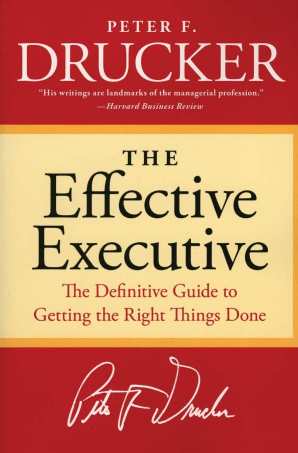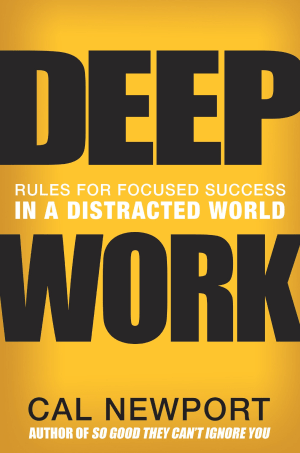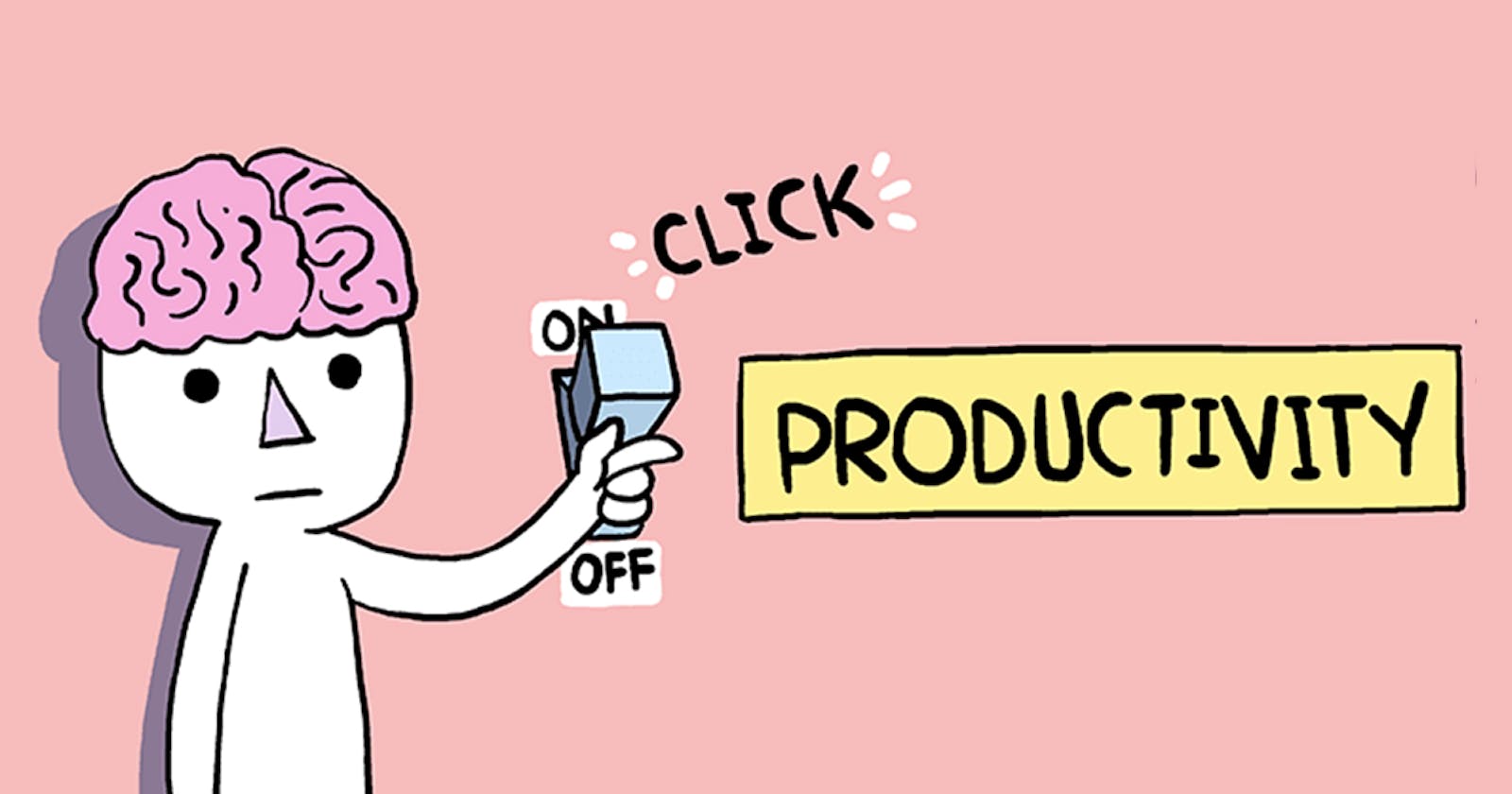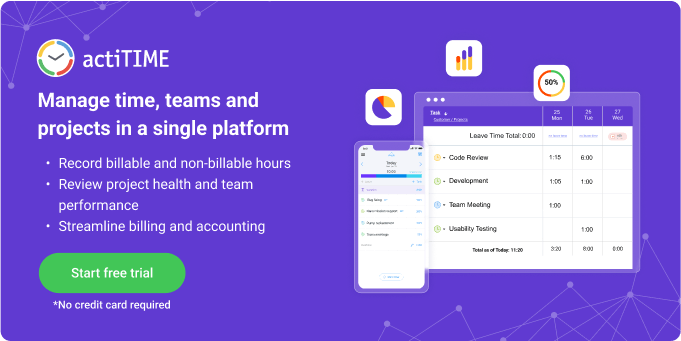Master These Three Skills to Improve Time Management 🚀
Hands-on advice on how to develop self-awareness, adaptability and organizational skills
We all have 24 hours in a day and time is ticking away second by second. We can’t save, store or reuse it. There’s no way to manage time but we can manage our attitude, activities and environment to get the most of the time we have. This is what time management is all about.
As entrepreneurs, managers and professionals, we are hungry for growth, want to reap results and progress in leaps and bounds. But results are not a direct output of time, it is a product of the efforts that we’ve sown. You can find millions of books, blogs and courses on how to be more productive and manage your time wisely, but the truth is that they all boil down to three skills, which is not much but that are hard to master.
Develop Self-Awareness
If you Google “time management tips,” you’ll get millions of pages written by respected authors and online editions. But somehow, this open-source information doesn’t make us a generation of time-management gurus. Most of us must’ve read a few productivity books and a dozen of articles about the 80/20 Rule or Eating the Frog, but only a few of us take action to review our time management habits and adopt the new ones. Why? Because most of us are not self-aware enough for that.
Self-awareness is the capacity to be aware of, control, and express your emotions. If we can regulate our emotions, we can clearly understand our strengths, weaknesses, and limitations, the way we gather and process information and handle stressful situations. In terms of time management, self-awareness lays the foundation for our behavior and skills including goal setting, communication, motivation, stress and time management. As long as we understand our inclinations and limitations, we can choose appropriate time management strategies that will serve us best.
Let’s see what approaches we can adopt to build a perfect time management strategy using reflection and introspection.
Master Goal Setting & Reflection
- Get some perspective. Do your everyday activities contribute to your personal, career or business goals? If not, develop a vision of what and where you want to be in a few years. If you focus on your goals and vision, It will bring more meaning into your daily routine and boost your confidence.
- Develop an action plan. After you establish a vision of your next goal or project, you need to break it down into manageable steps that meet SMART criteria: specific, measurable, achievable, relevant (realistic) and time-bound.
- Take action. Use time management software to upload your plan and record your time.
- Reflect on your progress. Review your performance and progress on a daily, weekly, bi-weekly and monthly basis. Use this data to identify trends and opportunities for growth from short-term and long-term perspectives.
- Ask for feedback. Communicate your intention to become more productive to your boss and ask their feedback about your performance. Be ready to take criticism.
Leave Out Low-Output Activities
- Identify unproductive activities. Use your time tracking data to identify tasks that don’t contribute to the project’s success and that you can eliminate with little or no damage to the outcome.
- Evaluate task importance. Even when you are in the middle of the task and you notice that it takes too much time already, step back and evaluate its importance and outcome.
Use Your Energy Wisely
- Focus on the end result. Think of how your tasks at hand contribute to your personal or corporate goals. Adjust your vision if necessary but never lose sight of it.
- Use peak performance time. To find your peak time, break your day into three to eight time slots and assess your energy level and productivity for a week. Rank-order these time slots and find your peak performance time at the top of this list. Use this time of the day for the most demanding tasks.
- Get comfortable with imperfection. Diligence and attention to detail are good traits, but they often take more time to produce better quality work when common-quality work is enough. Remember that 20% of input produce 80% of results.
- Practice self-care. Exercise regularly, develop a healthy diet, take breaks, meditate.
Improve Your Time Assessment Skills
- Estimate your activities. When planning your next task, project or Sprint, estimate these items for future productivity analysis.
- Allow for some buffer time. Buffer time takes into account unexpected circumstances that should be included in your estimations.
- Use time tracking software. Upload your tasks and time estimates into your time tracker and record time against them.
- See how your estimated and actual time stack up. After you finish a task, project or Sprint, run a report in your time tracking software where you can see your estimated and actual time, review your fudge ratio for activity type and use this data to better plan your future activities.
- Calculate the total fudge ratio. Build a list of tasks, make your time estimates for each item and track time against them. Add up your total time spent, divide it by the total estimated time and multiply the result by 100%.
- Ask for feedback. To reduce estimation errors, ask a neutral party for feedback about your task estimates. If appropriate, discuss your estimations with the project manager at task estimation meetings.
Improve Organizational Skills
Organizational skills refer to establishing order and structure in your goals, plans, schedules, and tasks. The main benefits include a clutter-free environment that gives you a greater sense of control, improves concentration and builds your professional reputation. Here are a few ideas of how you can bring more structure into your daily routines.
Upgrade Project Management
- Integrate and automate. Use online calendars, scheduling apps, time trackers, project management systems and other tech tools to automate routine tasks and access your data from any device. Explore app integrations and connect your apps so that they could exchange your data.
- Delegate. Delegation frees up your time for more important tasks, teaches your team communication skills and builds trust. Next time you feel overloaded, you’ll have a trained employee who can back you up.
- Outsource. Sometimes it’s a good idea to outsource a part of your or your team’s efforts. Let’s say, as a startup owner, you interview applicants, do all the accounting and manage your team. In this case, you should consider outsourcing HR and accounting tasks, because your attention is crucial for your business success while professionals take care of things that take you too much time and effort and don’t contribute to your business growth.
Master Prioritization
- Set deadlines. If you use a project management tool, you can define deadlines for items in your task lists and prioritize tasks with upcoming deadlines.
- Focus on 20% of the tasks. If 20% of tasks bring 80% of results, you need to identify this 20% in your task list. Use prioritization techniques to discover and prioritize these.
- Separate urgent from important. Urgent tasks require immediate action, whereas important tasks have more significant and long-term consequences. Prioritize tasks that are both urgent and important.
- Learn to say “no”. According to Berkeley University of California, people who struggle to say “no” have higher chances of experiencing stress and burnout. So don’t hesitate to politely refuse tasks and activities that are irrelevant to your goals.
Improve Scheduling
- Create a routine. Use calendar apps to block time for planned activities and add new items immediately as soon as they are planned or requested. Label your entries to navigate faster.
- Schedule protected time. Identify your peak performance time and ensure that you dedicate this time to the most demanding and important projects.
- Schedule me time. Include fixed commitments (meals, commute, sleep), self-care activities (exercise, meditation), guilt-free time (socializing, hobbies) in your calendar.
Save Your Brain Power
- Create to-do lists. Try compiling daily task lists and cross off items as you complete them. When you write down your tasks, you take them off your mind, leaving mind space for focus and concentration.
- Take notes. Document key points of meetings and conversations with colleagues to unload your mind and consult them at any time.
- Create running lists that you add to constantly. Create a list with ideas to explore or discuss with your manager, skills to improve, books and courses, you name it. Take these items off your mind and refer to this list when you need them.
Arrange Your Tools
- Know your tools. Email management tools, task board apps, industry-specific software offer keyboard shortcuts, labeling systems and other tiny features that can save hours of work time monthly – be sure to explore, learn and use those.
- Document important guidelines, meetings, procedures to unload your mind, refer to and share them with others in a few clicks.
- Save passwords. Most of us save sign-in data in our browsers, but we can’t retrieve passwords from there. Use password managers (like Clipperz) to store and access logins, passwords, usernames and other credentials.
- Backup important data. Have a copy of important docs on your cloud or external storage.
Eliminate Distractions
- Manage your attention. Recognize when your mind starts wandering and you give in to social media or other distractions. Redirect your focus when it slips up.
- Block time for emails. Workers spend about 28% of their workweek on reading and answering emails, making emails one of the biggest time wasters. Turn off email notifications and schedule two or three time blocks daily for checking emails.
- Declutter. Messy desks make us feel anxious, stressed and overwhelmed. Spend a few minutes daily to declutter space around you.
Grow Adaptability Skills
Adaptability skills refer to a person’s ability to adjust to changing environments and circumstances such as changing responsibilities, expectations and strategies. This skill set consists of sub-skills like communication, creative thinking and problem-solving skills. These skills allow people to manage high-pressure situations, deal with stress and distractions.
Cultivate Collaboration
- Communicate the company’s mission, team and individual goals. Bring your people together under one common goal and remind them about their roles and purpose in the company’s mission.
- Encourage openness and transparency. Share issues and challenges of your business with your team to inform them about the changing circumstances and give them a chance to participate and offer solutions.
- Promote problem solving and idea sharing. Establish a creative and judgment-free workplace culture and provide an environment where your team can share their ideas, start discussions and brainstorm solutions.
Master Stress Management
- Monitor changes in your environment. Take interest in changes in policies, procedures, finances, and other processes around you to be ready to adjust to changing circumstances.
- Create contingency plans. When planning your next task or project, consider best-case and worst-case scenarios.
- Identify your stressors. Practice journaling to identify sources of stress and look into ways to manage them effectively.
- Pursue hobbies. People who regularly engage in hobbies perform 15% to 30% better than people without hobbies. So schedule at least one block of time every week to do a hobby.
Improve Focus & Concentration
- Use productivity apps. Experiment with time trackers or checklist apps to measure your performance, keep track of your progress and identify opportunities for growth.
- Work in focused time intervals. When you feel overwhelmed, use short bursts of effort to avoid procrastination.
- Reduce time wasters. Use do-not-disturb time blocks and block distractions during peak performance and critical work time.
- Establish boundaries. Stick to your working hours and leave work at work. Turn off work-related notifications, mute team chats and use your non-working hours, weekends and vacations to recharge your batteries.
Further Time Management Reading
Effective time management is a hard skill to master because it includes dozens of sub-skills that allow us to manage our thoughts, emotions, communications and environment. Due to this, time management can’t be explained in a single article, online course or book. If you’d like to pass on to a more advanced read about time management, continue reading to explore our top 3 books for project managers and executives.
The Effective Executive: The Definitive Guide to Getting the Right Things Done by Peter F. Drucker

Time management pillars: Organizational skills, project management, prioritization
One-quote summary: “Intelligence, imagination, and knowledge are essential resources, but only effectiveness converts them into results.”
First published in 1967, this book remains one of the top reads with time-tested general practices for project managers. Although Drucker’s examples are dated, the wisdom has not aged. You’ll learn how to be accountable for your time, develop action plans, run productive meetings, focus on opportunities rather than on problems, and more. Highly recommended to executives that need to brush up on essential principles of effective team and self-management.
Deep Work: Rules for Focused Success in a Distracted World by Cal Newport

Time management pillars: Adaptability skills, stress management, prioritization
One-quote summary: “What we choose to focus on and what we choose to ignore—plays in defining the quality of our life.”
In his book, Cal Newport addresses the problem of an increasingly distracting world that reduces our cognitive and concentration abilities. He introduces the concept of Deep Work – an ability to maximize concentration, speed up our growth and produce better-quality results in less time. In the first part of the book, he illustrates how different professions can benefit from the Deep Work approach. In part two, Newport provides four rules on how to implement deep work into your day to day life.
Getting Things Done: The Art of Stress-Free Productivity by David Allen

Time management pillars: Self-awareness, focus and performance
One-quote summary: “Your ability to generate power is directly proportional to your ability to relax.”
David Allen’s book is meant for experienced project managers. It provides tips on how to be more organized and relaxed and get more done using the same resources. The main idea of this book looks simple at the first glance: our productivity is directly proportional to our ability to relax. But to achieve this, you need to learn and master the necessary tools that David Allen teaches you in this book.
Start With Time Tracking
You can’t improve your time management tactics and approaches if you don’t keep track of your time. Time tracking sounds like a tedious task, but once you implement it into your routine, it will reveal unexpected trends and insights. When you analyze how many hours phone calls, emails and distractions take, you can develop a more strategic approach to your time. Try actiTIME’s free 30-day trial (no credit card required) or book a product demo to learn if it’s a good fit for your business.


